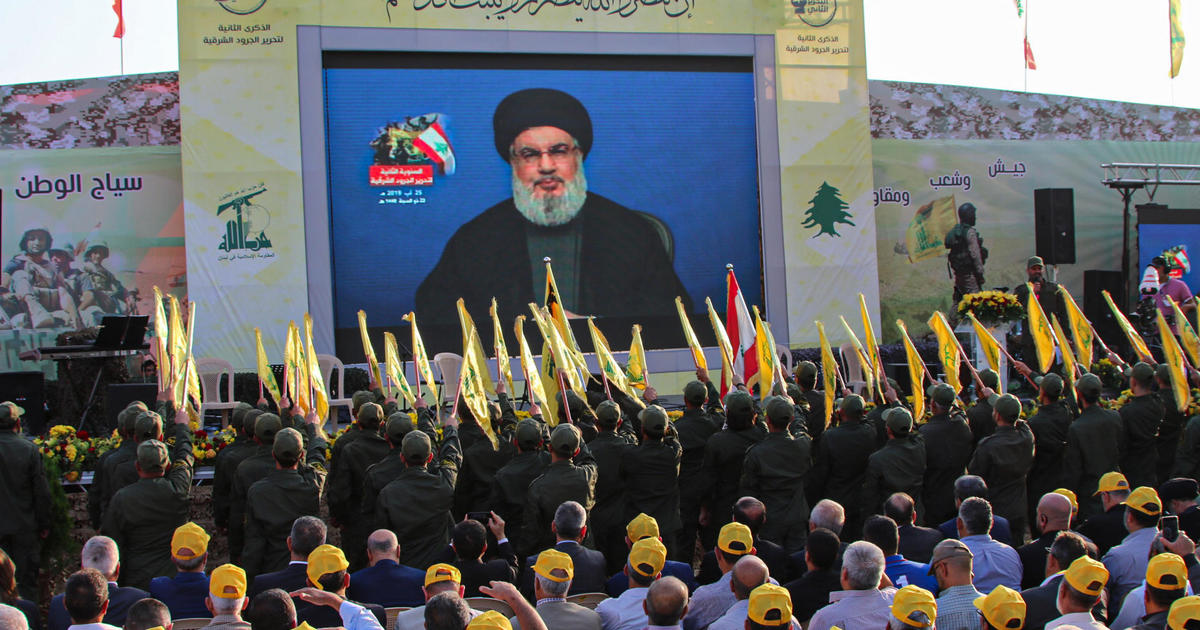Hezbollah leader Hassan Nasrallah, a figure who dominated the Lebanese political and military landscape for over three decades, was killed in an Israeli airstrike on Friday. The Israeli Defense Forces (IDF) claimed responsibility for the strike, stating it targeted the “central headquarters” of the Iran-backed group in Beirut, Lebanon. The strike also reportedly killed Ali Karki, the commander of Hezbollah’s southern front, and other key Hezbollah leaders.
Nasrallah’s Rise to Power and Hezbollah’s Trajectory
Nasrallah’s journey from a humble background to the helm of Hezbollah is a testament to his political acumen and strategic brilliance. Born into a poor Shia family in Beirut in 1960, his life was shaped by the tumultuous events of Lebanon’s civil war. Nasrallah joined the Amal Movement, a Shia militia, which later evolved into Hezbollah with Iranian backing. He studied in Iran and ascended to the leadership of Hezbollah after his predecessor, Abbas al-Musawi, was assassinated in a 1992 Israeli helicopter strike.
Nasrallah’s leadership was marked by his fiery rhetoric and his unwavering commitment to Hezbollah’s goals. The group’s ideology crystallized around the twin objectives of destroying Israel and dismantling the U.S. presence in Lebanon. Hezbollah’s military arm gained notoriety for its involvement in acts of terrorism, including the bombing of U.S. embassies in the 1980s, airplane hijackings, kidnappings, suicide bombings, and espionage activities.
Nasrallah’s Military Victories and Political Expansion
Under Nasrallah’s stewardship, Hezbollah emerged as a powerful military force capable of challenging Israel on a significant scale. His leadership spearheaded the 34-day war against Israel in 2006, a conflict that cemented Hezbollah’s military prowess and its standing as a formidable opponent to the Israeli state. He also directed Hezbollah’s involvement in the Syrian Civil War, aligning the group with Bashar al-Assad’s forces and contributing to Assad’s ability to retain power.
Hezbollah’s military successes were accompanied by significant political growth. Following the conclusion of Lebanon’s civil war in 1990, Nasrallah astutely transitioned the organization into a political entity, establishing a comprehensive social welfare network that provided essential services to the impoverished Shia population in Lebanon. This political expansion resulted in Hezbollah winning seats in Lebanon’s parliament, solidifying its role as a key political player in the country.
The Impact of Nasrallah’s Death and the Future of Hezbollah
Nasrallah’s death creates a vacuum of leadership in Hezbollah, raising significant questions about the future of the organization. His passing comes at a time when the Middle East is grappling with heightened tensions, regional power shifts, and the threat of further instability.
The immediate aftermath of Nasrallah’s death is likely to be marked by heightened uncertainty and volatility. Hezbollah’s internal dynamics and its future direction will be closely scrutinized. Nasrallah’s charismatic leadership was instrumental in unifying the group and securing Iranian backing. Whether his successor will be able to maintain that unity and influence remains a major question mark.
Implications for Regional Security
Nasrallah’s death will also have significant implications for regional security. Israel, which has been locked in a long-standing conflict with Hezbollah, will undoubtedly view this as an opportunity to potentially weaken the group. However, Israel must also consider the possibility that a leadership change within Hezbollah could result in a more unpredictable and potentially volatile situation.
For Iran, the loss of Nasrallah presents a considerable challenge to its regional strategy. Iran has heavily relied on Hezbollah as a key proxy in Lebanon, and the loss of its influential leader could strain relations between the two groups.
Potential for Escalation or Moderation
Nasrallah’s death could trigger a period of instability in the region, particularly in the context of the ongoing conflict between Israel and Hezbollah. The group has long sought to avenge past Israeli actions, and the death of its leader could provide further justification for retaliation.
Alternatively, there is a possibility that Nasrallah’s death could pave the way for a shift towards moderation within Hezbollah. A new leadership may be more inclined to pursue political solutions over military confrontation. The course Hezbollah takes in the coming weeks and months will be closely observed by all regional stakeholders.
Takeaways
- Hassan Nasrallah’s death marks the end of an era in Lebanese politics and in the broader Middle East.
- The loss of Nasrallah presents a considerable challenge to Hezbollah and to its allies, particularly Iran.
- The immediate aftermath of Nasrallah’s death is likely to be a period of uncertainty and volatility, potentially leading to escalation in the region.
- Hezbollah’s future direction will be influenced by the leadership dynamics and by the group’s strategic considerations.
- The international community will closely monitor the situation, seeking to prevent further instability and conflict in the region.




